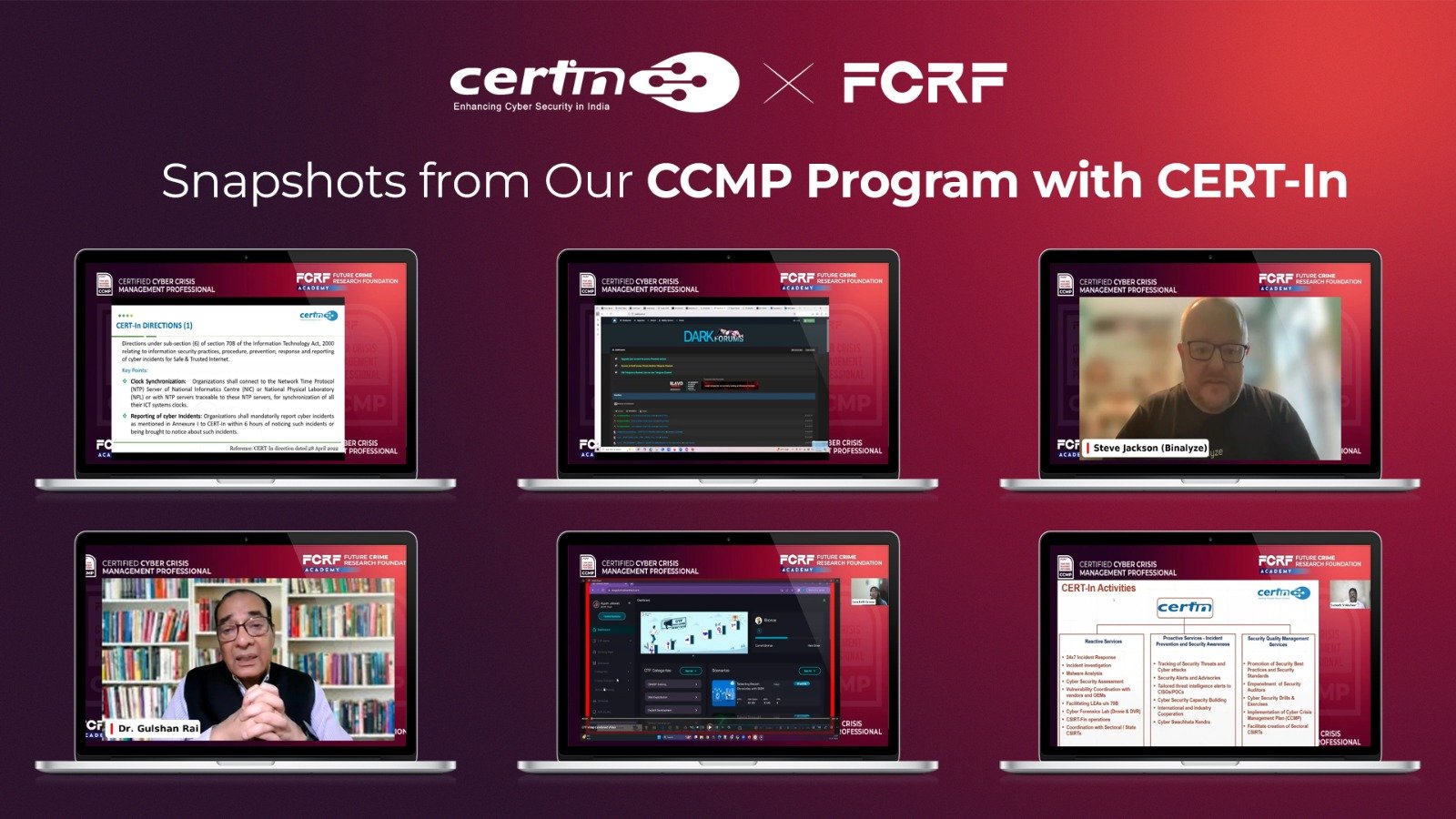India’s legal system is racing to keep pace with a society that is now overwhelmingly digital—banking, retail, government services, even neighborhood disputes that migrate to social media and encrypted chat. Into that gap steps the Certified Cyber Law Practitioner (CCLP) program, a four-week certification run by the Future Crime Research Foundation (FCRF) that explicitly trains lawyers, investigators and compliance professionals to read, interpret and argue the law where data, devices and jurisdiction collide.
The syllabus is unambiguous about its ambitions. Over 16 modules, the course covers the Information Technology Act, 2000, the Digital Personal Data Protection Act, 2023, and India’s new criminal codes—the Bharatiya Nyaya Sanhita (BNS), Bharatiya Nagarik Suraksha Sanhita (BNSS) and Bharatiya Sakshya Adhiniyam (BSA)—through the lens of evidence, privacy and cross-border data flows. Faculty include practicing cyber-law advocates, forensics specialists and policy practitioners who teach live on weekends, with recordings and handouts available shortly after each class. The audience is intentionally mixed: litigators and in-house counsels, CISOs and GRC leaders, regulators, investigators, and students looking to move into privacy and cyber law.

What distinguishes the offering, organizers say, is not only content but continuity: alumni channels and working groups that continue to exchange updates on breach notifications, platform takedowns, darknet discovery and the practicalities of chain-of-custody long after certificates are issued.
Why This Credential Matters Now
The timing is not incidental. India is in the midst of implementing the DPDP framework while preparing agencies and enterprises for enforcement. At the same time, the caseload of digital disputes—from e-contracts and signatures to algorithmic decision-making and workplace surveillance—has outstripped the training that most law schools and academies provide. Nearly every civil or criminal matter now leaves a digital trail; few come with clean jurisdictional edges.

CCLP’s design reflects that reality: modules move from electronic evidence and admissibility to cross-border transfers and platform liability, then on to incident response, breach reporting and compliance architecture. The result, past participants say, is a shared vocabulary between technical and legal teams—one that can shorten investigations, harden compliance programs, and reduce the mismatch between regulatory intent and what actually happens in discovery.
A Track Record That Goes Beyond the Classroom
The CCLP program is not an isolated experiment. It sits on top of an FCRF training portfolio that includes the Certified Cyber Crisis Management Professional (CCMP)—delivered in partnership with CERT-In and completed by 500+ senior officials across civil services, defense, cybersecurity and regulators—and the Certified Data Protection Officer (CDPO) course, which put the DPDP regime into practical context for another 500+ professionals earlier this year.
FCRF is also the organizer behind the FutureCrime Summit, a convening that pulls together prosecutors, police, technologists and policy makers. Most recently, the foundation signed an MoU with NIELIT (MeitY), the government’s informatics and electronics training arm, in the presence of Railways and IT Minister Ashwini Vaishnaw—a signal, attendees noted, that cyber capacity-building is being treated as national infrastructure. That institutional footprint matters to participants who want a credential that is recognized by employers and regulators alike.

How the Course Works—and Who It’s For
The four-week structure is deliberately compressed: weekend live classes to fit around work schedules; case bundles that trace the life of a matter from seizure to courtroom; and office-hours style Q&A aimed at translating black-letter law into briefs, SOPs and board memos. Sessions on platform takedowns, due process, MLATs/letters rogatory, and cloud forensics are paired with compliance workshops on vendor risk, DPIAs, retention and lawful interception.
For litigators, the draw is evidentiary confidence under the BSA and emerging jurisprudence. For in-house counsels and DPOs, it’s playbooks for breach response and DPDP readiness. For CISOs and GRC leaders, it’s the legal language needed to negotiate with regulators and courts when incidents become investigations. And for students and lateral entrants, it’s a structured pathway into a domain where demand outstrips supply. If you intend to join India’s premier cyber-law certification, now is the moment. Click Here to register for CCLP.




